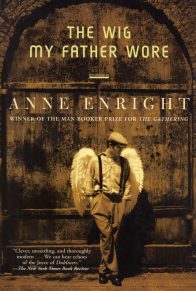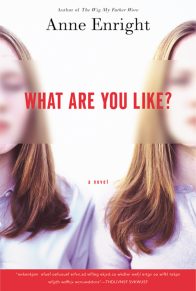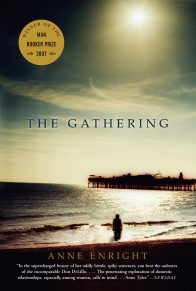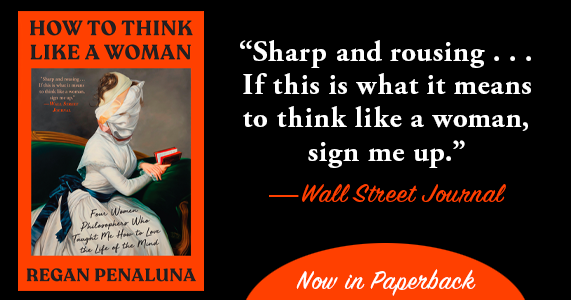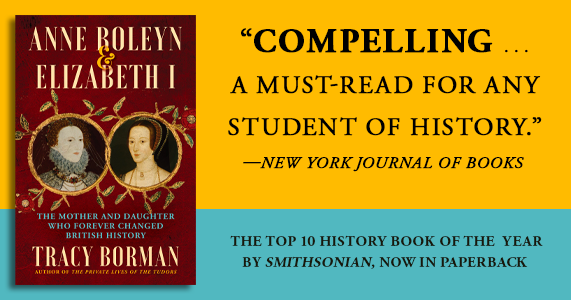The girl died.
Well, what was that to me? The girl died. And it was nothing to do with us, with either of us. She died the stupid way that people do—in a car crash, in Italy. Where, presumably, she was driving on the wrong side of the road.
Silly twit.
If the girl had not died then she would not have mattered in the slightest. She would have been a lapse; my husband is prone to lapses—less often of late, but yes, once every couple of years he does lapse, after the office party say, or travelling on business. I don’t think he visits prostitutes—I mean, some men do, some men must. Or quite a lot of men must, actually—but my husband doesn’t. And I know, I know, I would say that, but . . .
I’ve thought about this a lot over the years; things catch my eye in articles, in magazines.
I have wondered, What makes them go and what makes them stay, what do they want, men? It’s the great mystery, isn’t it? What men “want.” And the damage they might do to get it.
The things you read in the papers.
“Oh, sure they’re all the same.” Isn’t that what your mother used to say? “They’re all the same.”
But they’re not. They have their reasons and they have their limits. They have hearts, too. And I can say, without a shadow of a doubt, that my husband is not the kind of man to buy sex in the street. He likes intimacy. That is what he craves. My husband is the kind of man who will always look you in the eye. He loves women—even older ones. He loves to talk to them, and make them feel good, and he loves to kiss them, and be a little dangerous; he loves the melancholy of all that, it makes him feel so young. And he also loves me.
He is not a bastard, that is what I am saying. I am saying that he is a fantastic man. My husband is a fantastic man. And until the girl died, beetling along in her little Renault Clio on the wrong side of a road in Tuscany, until the girl died, that was enough for me. To be married to a fantastic man who loved me, and was prone, once in a long while, to a little lapse and a lot of Catholic guilt about it. Oh, the bloody bunch of flowers and the new coat in Richard Alan’s sale. Isn’t it worth it? I used to say. Isn’t it bloody worth it for a trip to Brown Thomas’s and a long weekend with the kids, all of us together in Ballybunion, walking the winter beach, a couple of bottles of wine and more conjugal antics than is decent at our age, with my wonderful husband, home again after his little lapse; some overambitious young one who will Shortly. Be. Fired. Thank you darling and, no, I know you will never do it again.
But actually I hated it. It was like living on a page of some horrible Sunday newspaper. Horrible people. Horrible people with their horrible sex lives and their horrible money.
No.
He works hard, my husband. And I have always been a great asset to him. And we are ordinary people. And I am proud of that too.
Ke . . . I can’t say his name. Isn’t that funny?
It is quite an ordinary name, I say it fifteen times a day. Mind you, he never calls me anything back. Isn’t that the way of it? What do men call their wives. “Em . . .” Like every woman on the planet was christened Emily.
“Em . . .is that shirt clean?”
The girl was called—listen to this—Samantha.
Not that I knew this at the time. Not that I knew anything at the time.
And she was only called “Samantha” because she died. If it hadn’t been for the car crash she would have been, and always remained, that young one in IT, or even that slapper over in IT. O’Connell Street might be full of slappers, but if one of them slaps off, pissed, in her mini skirt and high heels, and gets herself run over, then she’s—what?—she’s a fine young woman, who liked to wear white.
I’m sorry.
But.
The poor child, who thought it was a laugh to sleep with my husband—and it is a laugh, God knows I have laughed enough myself—the poor child, who thought it was a laugh to sleep with the father of my three children, did something worse than all that. She went and died on him too. She went and died on us all.
Of course, I didn’t have a clue.
He came home—when I think about it, it must have been the day he’d heard the news—and he sat in the sofa, and for the first time since his mother’s funeral, I saw him cry. The children saw him cry. I had no idea what he was crying for. I felt like calling an ambulance. Then I put two and two together and realised he must be lapsing again, he must be mid-lapse. And I panicked.
I know that. I did panic. And it’s not like me. He lifted his head to speak to me and I said,
“I don’t want to know.” That was all. “I don’t want to know.” And I said it really fast, like I was talking off the record, here. Like what was happening was not actually happening. Or he’d better make bloody sure it wasn’t happening because I wasn’t having the mess of it all over my beautiful, hard-won house. And he pushed his face around to clear away the tears—not hot tears, not outraged, grief-stricken tears, just that leaky, worn-out water you find on your face sometimes, when you are sick or defeated—he wiped the tears away and then he just sat.
My fantastic man.
The first time it happened, at a guess, was when the children were small. I was up to my tonsils in nappies and mayhem, falling asleep before my head hit the pillow, fat as a fool. Anyway. They feel “excluded,” fathers; isn’t that what the articles say? They have the weight of the world on their shoulders, and after a while—I’m convinced of this—they start to resent you, maybe even to hate you. Then, one day, they love you madly again and you realise—slowly, you realise—that they have been up to something. They’ve had a fright. They’ve come running back home.
Which is nice, too. In a way.
Oh, what the hell.
The first time it happened, my father was in having some tests, actually, and I was far too busy to shout at my husband, or go through his pockets, or sniff at his clothes before I put them in the washing machine. I had more important things on my mind. In the end, everything went so well, Daddy didn’t even have to have chemo—after which, I was too relieved to double back and start shouting at my husband, or sniffing at his clothes. It was over by then, and besides, I had learned something about myself. I’d learned that I was not that sort of woman—the sniffing sort, the type to rage and scream. And that was an odd kind of feeling, I must say. Because I grew up with the same dreams as every other girl, but when the chips were down . . . When the chips were down, I kept my head held high.
What was I supposed to do?
One part of me thought he deserved a holiday, to be honest; that if I had the chance I might take one myself. Another part of me thought, “Someone must die.” I really thought I might kill someone for this. I might kill her. Or I might kill him. Or I might leave them to it and kill myself. Well, that’s no use, is it? This stupidity, this incontinence of my husband’s was too small to bother about. And it was too large to leave us all standing; all still alive.
But maybe it was in my head, from that time. In both our heads. The idea that someone must die.
So what are we looking at? Two or three more, over the course of the years? A scattering of “accidents,” and then, one day, this, whatever it is. A man crying on the sofa. Grief.
It was half past five. The children were watching telly before tea. I cleared them out of there—my daughter, the apple of her father’s eye, welling up a bit herself at the tragic look of him, with his coat thrown beside him and his briefcase still in the other hand.
Kids bury that sort of stuff very deep. I thought it would be better if she talked about it, but when I asked her, a week later, about her father crying on the sofa she just looked at me, like I had landed in from outer space.
“What sofa?” she said. “Which sofa?”
That’s Shauna for you, who is nine. There’s no point talking to her brothers about it, they’ve already gone into the grunting phase.
And then I think, Why not? Why not talk to your sons about things? Why not rear men who can speak?
Because there’s my husband, collapsed against the oatmeal-coloured linen mix, staring mortality in the face. And what else? His own smallness. Looking as though he had killed her himself, although he had not killed her, he had not even loved her. Thinking (as I imagine) about some beautiful part of her, mangled by the door or bonnet, and turning already to clay.
And there is no one he can talk to about this. No one at all.
Men don’t have friends like that—guys you might ring and say, “Take him out for a drink. Talk it over. Sort him out.” No. The only friend he has is me.
And he can’t tell me, because I really do not want to know.
All this in hindsight, of course. At the time, I looked at him and I thought that our marriage was finished, or that he was finished. I was looking at extended sick leave and then what? My husband crying on the sofa was forty-nine years old. And if you think forty-nine is a tough station, try fifty-five.
I was looking at a long future with a man who had forgotten what he was for.
So when he pushes the tears off his face with his hand, and when he lifts his face to tell me all about it, there is only one thing I can say to him, and that is:
“I don’t want to know.”
How did we get through the next week? Normally, at a guess. That’s how we did it. We got through the week in a completely normal way. While I waited for some hint or clue. The back page of the paper that he stares at too hard and too long. And then, on Tuesday morning, I come in from the school run and he’s still there, in his dark suit, putting on his funeral tie.
“Who’s dead?”
“Some girl,” he says.
“What girl? Someone’s daughter?” He doesn’t answer. He brushes his shoulders off in the mirror.
He says, “We only get them trained and they’re gone.”
“Well, I’m sure she didn’t mean to.”
Round and round goes the funeral tie, down through the knot. Pull it tight, ease it a little loose again. Kiss the wife goodbye.
“You don’t want me to show?” I say, because I am raging now. I know what has happened, now. I want to twist the knife.
“No,” he says. “She was only in the door.”
“You sure?”
“No, no.” Pick up your briefcase, pull your phone off the charger, check for your keys.
“Home for tea?” I say.
“What is it?”
“I thought I’d grill a bit of salmon.”
Forget where your good coat is kept, open one door of the wardrobe, the other door of the wardrobe, look to your wife who says, “It’s under the stairs.”
Look your wife in the eye as she says this, reach out to touch her neck and hair.
Say, “Thanks,” then off you go.
Oh, I know what you are thanking me for.
The front door clicks shut on my husband in his funeral tie and I wander downstairs to tidy away the breakfast things and make my usual cup of coffee. I fill the kettle and plug it in. I take out my mug and put it on the counter. And then, before the water is boiled, I have the recycling bin spilt all over the floor, and I’m going through the old newspapers for death notices.
Samantha “Sammy” MacHale, tragically, abroad. Easy. I get out the phone book and look that up too.
The church is in Walkinstown, so that’s her family off the Cromwellsfort Road. She might have lived at home still, at twenty-four—the price of everything these days. I could go there now, if I wanted to. I could drive there in my little car. I wonder do her parents know what she got up to? I have a shameful desire to tell them—so sharp, I have to stand still until it subsides.
I am not that kind of person.
No.
I make my cup of coffee and I calm down.
Still, I wonder what she looked like. What school did she go to; do they have pictures in the corridors, of former girls in a row, the class of—what year would she be?—the class of 1998.
So young.
Who could be that young?
All the time I am loading the dishwasher and pulling out the hoover and doing my morning round, the funeral is happening in my head. But I am not going to jump in the car and hack my way across town to Walkinstown. I am not that kind of person. I am not going to panic at the last minute and show up at the cemetery to check the faces at the grave and pick up a few words here and there, about what a fine girl she was, “irrepressible,” “full of fun.” Bloody right she was full of fun.
Or not. Maybe she was shy, unassuming. Easily impressed. She might have been a quiet kind of girl. A girl who was anxious to please.
No.
I am not going to find this out, or anything else. Because that would be obscene. I am not going to show up like a ghost at the wedding—what’s the opposite of that?—like a flesh and blood wife, at this last dance with the dead.
We had the salmon when he came home. Potatoes. A bit of asparagus.
“Lovely,” says my husband. “Delicious.” Then he gets up afterwards and makes himself a sausage sandwich, cold from the fridge. Butter, mayonnaise, the lot.
And I say, “Why don’t you stick some lard in there, while you’re at it?”
This is the last real thing I say to him, for a long while. Where’s the gas bill gone when will you be home would you pick up Shauna from her ballet? We could do this for ever. After a few weeks of it, my husband gets a nervous cough: he wonders if it could be lung cancer. His toe is numb, isn’t that a sign of MS? And I just say, “Get it checked out.” Because the girl is dead. So let’s not bother with the fuss and foother of getting back together. Let’s not do all that again. Not this time. This time let us mourn.
I am too proud. I know that. And in my pride I watched him—my fantastic, stupid man—lurch around in his life. And I did not offer him a helping hand.
Where’s the key to the shed when will you be home would you buy a pack of plastic blades for the Flymo?
The girl was with us, all this time. Dead or alive. She was standing at the bus stop on the corner, she was sitting in our living room watching Big Brother, she was being buried, night after night, on the evening news.
I think that milk’s gone off when will you be home I really don’t want the children having TV sets in their rooms.
After a month of this, I looked at my husband and saw that he was old. It did not happen overnight; it happened over thirty nights or so. My husband shaking hands with death. And what else? Thinking about it. Thinking it wouldn’t be so bad to be dead, after all. Like she was.
Whenever I woke in the night, he was awake too. Once I heard him crying again; this time in the shower. He thought the noise of the water would cover it. I listened to him snuffling and choking in the spray and I realised it was time to put my pride away. It was time to call him back home.
On Saturday, after the supermarket run, I put on my good coat and my leather gloves. And a hat, even—my funeral hat. And when my husband said, “Where are you off to?”—because God knows I never go anywhere without drawing a map—I said, “I’m going to visit a grave.”
I had a beautiful bunch of white lilies, all wrapped up in cellophane. I picked them off the kitchen counter and walked past him—I cradled the lilies against my shoulder and I walked past my husband, who was now old—and I did not look back, as I went out the door.
She did not matter to him, I know that. I know she did not matter. So I went to the cemetery and sought out her grave. I wandered through the headstones until I found her, and I put the lilies on the ground under which she lay, and I told her that she mattered. Then I went home and said to my husband. Then I went home and said to Kevin:
“Let’s do something for Easter, what do you think. Something nice. Where would you like to go?”





